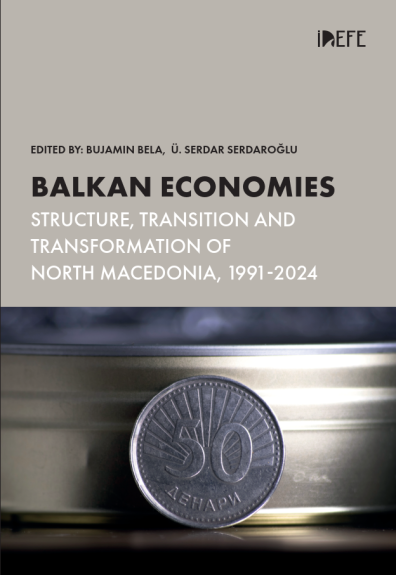Balkan Economies
Analysis of Economic Crises and Responses: Studying Macedonia’s Approach to Handling Economic Crises
Authors
-
Blerta KondriAssist. Prof. Dr., Mother Theresa University, Skopje
Synopsis
Since it independence from Yugoslavia in 1991, Republic of North Macedonia has become more liberalized country and with an improved business environ-ment. Prior to independence, North Macedonia was the poorest republic of Yu-goslavia (only 5% of Federal output of goods and services).
An absence of infrastructure, United Nations sanctions on its largest market ( The Federal Republic of Yugoslavia)1 and a Greek economic embargo were the reasons of the low economic growth rates until 1996. Worker remittances and foreign aid have influenced the recovery of the country after this year, when GDP has started to heal economic growth, except in 2009 as a result of the war in Kosovo.
Regardless of the reforms made in the business and fiscal sector, unemployment rates were high and the trade deficit was large while inflation rates were low, ma-intaining the macroeconomic stability. Prudent macroeconomic policy through a fix exchange rate of the local currency, it has also had an impact on maintai-ning this stability.
After the fall of the Former Yugoslavia, the economy of North Macedonia ex-perienced several shocks which negatively affected the local economy, starting with the Western embargo on the Yugoslavian common market, and ending with the Greek embargo over the Macedonia naming dispute. After 2001, The GDP of North Macedonia grew by an average of 6% annually until the 2007-2008 financi-al crisis, when its economy contracted due to the Global Financial crisis. North Macedonian economy experienced the deepest decline from the health crisis of Covid-19, which consequences are still present today.
Precisely, the effects of the last two crises, which caused huge negative consequ-ences in North Macedonia, are the focus of the analysis in this chapter.
Copyright
Copyright (c) 2025 Bujamin Bela (Volume editor); Marica Antovska Mitev, Tatjana Drangovska, Bekim Fetaji, Veland Ramadani, Blerta Kondri, Burim Latifi, Bukurije Imeri Jusufi, Neritan Turkeshi, Violeta Madzova, Arbresh Raveni, Dr. Sevba Abdula (Chapter Author); Üzeyir Serdar Serdaroğlu (Volume editor)
License

This work is licensed under a Creative Commons Attribution-NonCommercial 4.0 International License.
Analysis of Economic Crises and Responses: Studying Macedonia’s Approach to Handling Economic Crises
Downloads
Publication Information
-
Publication TypeChapter
-
Volume
-
Pages177-205
-
PublishedJune 5, 2025
-
Series
-
Series PositionResearch 10
Bela, B., & Serdaroğlu, Üzeyir S. . (Eds.). (2025). Analysis of Economic Crises and Responses: Studying Macedonia’s Approach to Handling Economic Crises. In Balkan Economies Structure, Transition and Transformation of North Macedonia, 1991-2024: Vol. Research 10 (pp. 177-205). Idefe Publications. https://doi.org/10.51331/EB08BK
